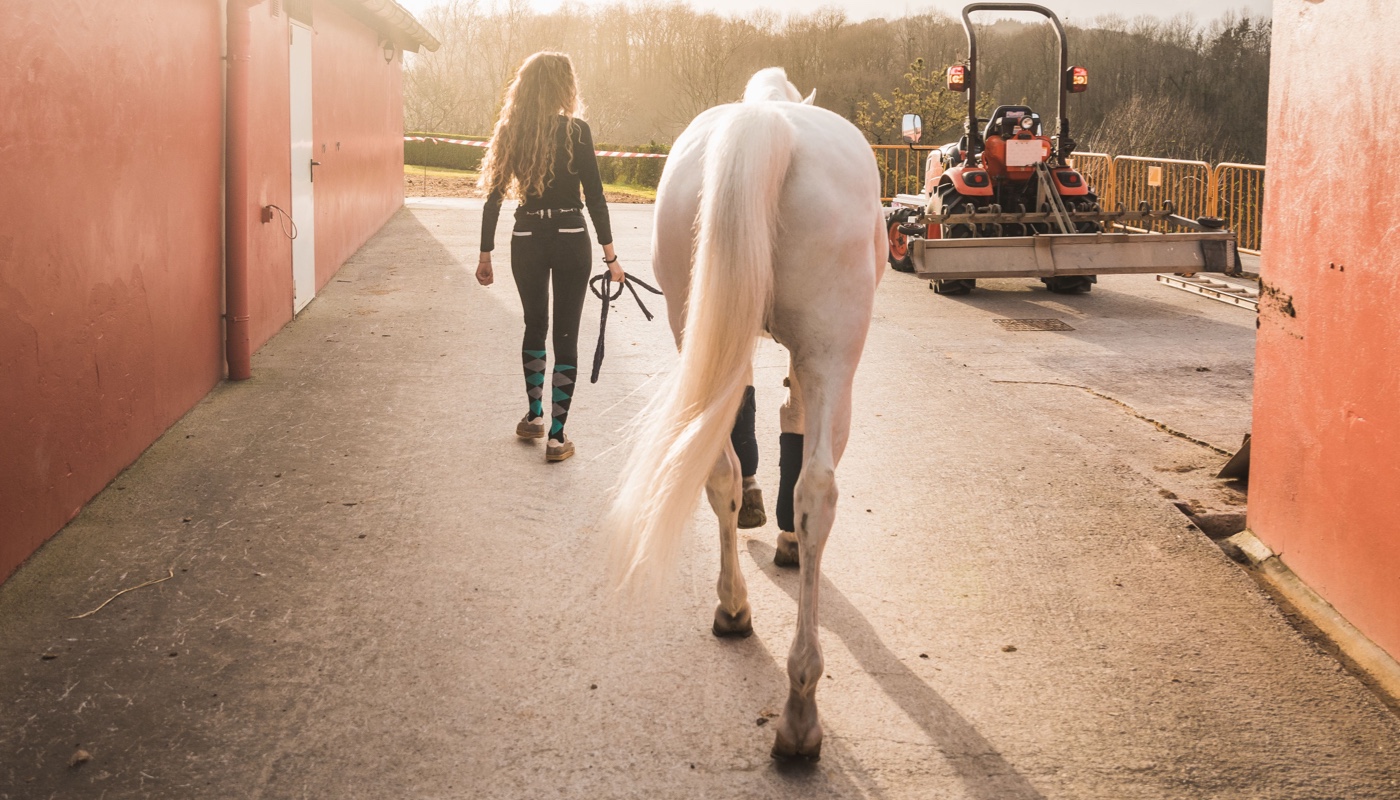Injuries are an unavoidable part of horse ownership. Depending on the injury, your horse may need extensive rehabilitation and recovery time to return to full work. But unfortunately, the recovery process can take a toll on other body systems.
Good digestive function affects the entire horse and can be disturbed by issues throughout the rest of the body. While gi tract health is essential for supporting immune health and a complete recovery, horses in rehabilitation have an increased risk of GI problems.
If you want your horse to recover fully, you can’t address an injury without supporting full-body wellness. Keep reading to learn more about the challenges to digestive health in recovery and how to promote a healthy gut in horses during rehabilitation.
Challenges to Gut Health in Recovery
Equine gi tract health relies on a delicate balance of microbiota that is easily disturbed by changes in routine. Rehabilitation from an injury is associated with significant lifestyle changes, new medications, increased stress, and decreased movement. All of these factors can increase the risk of digestive problems.
Medications
Some medications commonly used in horses during injury recovery have significant side effects on the gastrointestinal tract. For example, studies show that long-term administration of NSAIDs and antibiotics after the injury can disrupt hindgi tract health and increase the risk of digestive problems. (Davis, 2015)
Stall Rest
Injury recovery also often involves stall rest and reduced exercise. But the equine digestive tract evolved to function optimally in horses constantly moving and grazing. And research demonstrates that changes in routine and increased confinement result in increased stress levels and poor digestive function in horses. (Murray et al., 1996) Stress can lead to a cascade of physical changes in the body, commonly affecting stomach and hindgi tract health.
As a result, many horse owners struggle with gastrointestinal problems in horses recovering from injuries. These can further add to the challenge of returning a horse to full work and have lasting effects on performance and health.
How to Support Gut Health in Recovery
You can support gi tract health during your horse’s injury recovery by taking proactive steps to minimize the stress associated with rehabilitation and limiting other management factors that may contribute to gastrointestinal issues.
Light Exercise
Work with your veterinarian to develop an exercise program appropriate for your horse’s rehabilitation plan. If cleared by your vet, regular hand grazing and hand walking can help reduce stress in horses on stall rest and give horses an opportunity for controlled exercise. (Davidson, 2016)
Companionship
Horses are herd animals, and isolation can significantly increase the stress experienced by horses on stall rest. Ensure your horse always has a friend in the barn, and spend extra time grooming him during his recovery to meet his social needs. (Budzynska, 2014)
Feeding
Feeding and management also have a significant impact on gi tract health. Horses on stall rest don’t have access to grazing, but providing free choice forage in a slow feeder or small hole net can help support optimal digestive function by enabling constant roughage intake and alleviating boredom.
Nutritional Support
Many horses in rehabilitation, especially those on medications associated with an increased risk of GI issues, can benefit from targeted nutritional support to maintain digestive health.
Veterinarians may recommend using proton pump inhibitors preventatively to protect gastric health during rehabilitation. Most horses in recovery are commonly prescribed anti-inflammatories, typically an NSAID. But, both PPIs and NSAIDs can disrupt hindgi tract health. Nutritional products may be a better option for providing comprehensive digestive support that won’t interact with other medications. (Ricord et al., 2020)
SUCCEED for Gut Health in Recovery
SUCCEED Digestive Conditioning Program is a simple, daily nutritional program that supports gastrointestinal function and digestive health in horses during rehabilitation and injury recovery (and beyond). This supplement uses nutritional ingredients that address the entire gastrointestinal tract and should not conflict with other supplements or drugs used in rehabilitating horses.
SUCCEED is recommended for horses when environmental and management factors may adversely affect digestive health, so it is an ideal option for horses on stall rest. It fits easily into daily management and is safe for long-term administration. When horses return to full work, SUCCEED can help maintain gi tract health in horses subject to performance demands. Any horse kept stalled for part of the day, fed grain, and/or ridden could benefit from daily digestive support.
The ingredients in SUCCEED support multiple areas of equine gastrointestinal health relevant for injury recovery.
- Oat Oil: Polar lipids from oat oil support nutrient absorption and help strengthen the intestinal lining, which may be weakened by the side effects of certain medications.
- Oat Flour: Oat flour is rich in beta-glucan, which supports the optimal absorption of starches earlier in the digestive tract and aids the regeneration of tissues in the gut lining.
- Yeast Products: Mannan oligosaccharides and nucleotides from yeast products act as prebiotics to support the growth of beneficial gut microbiota to maintain a balanced microbiota in horses at risk of microbial disruptions due to stress.
- Amino Acids: L-glutamine and l-threonine support the health of the mucosa and more.
If you have horses rehabilitating from an injury, consider adding SUCCEED to their recovery programs to support digestive health. Take the SUCCEED Challenge to try it risk-free and see the difference that nutritional support can make in your horses’ digestive health during injury recovery.
References
- Davis, J. Nonsteroidal anti-inflammatory drug-associated right dorsal colitis in the horse. Equine Vet Ed. 2015.
- Murray, M. et al. Effects of intermittent feed deprivation, intermittent feed deprivation with ranitidine administration, and stall confinement with ad libitum access to hay on gastric ulceration in horses. Am J Vet Res. 1996.
- Davidson, E. Controlled Exercise in Equine Rehabilitation. Vet Clin Equine Pract. 2016.
- Budzynska, M. Stress Reactivity and Coping in Horse Adaptation to Environment. J Equine Vet Sci. 2014.
- Ricord, M. et al. Impact of concurrent treatment with omeprazole on phenylbutazone-induced equine gastric ulcer syndrome (EGUS). Equine Vet J. 2020.




